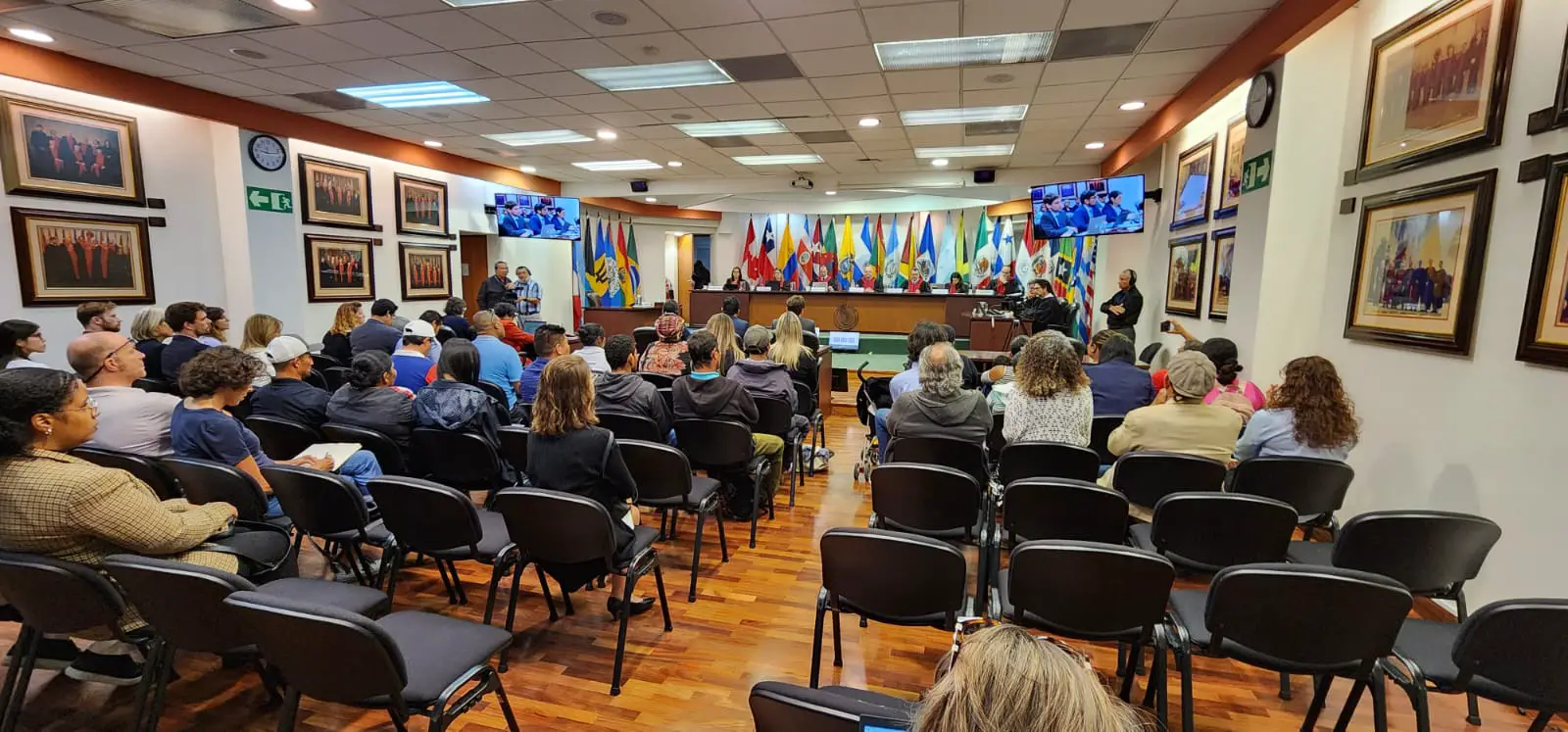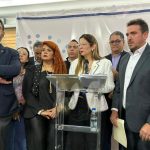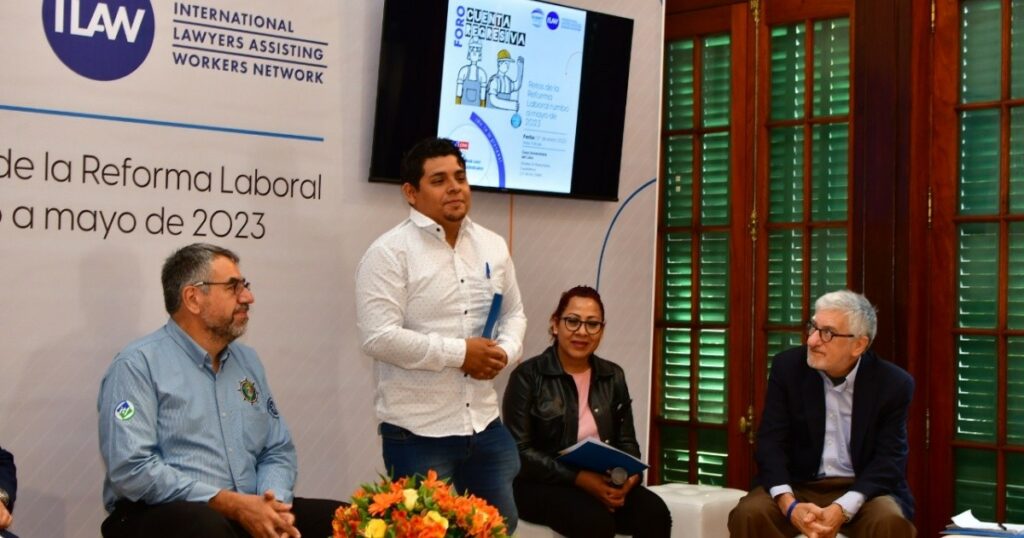The regime of Daniel Ortega and Rosario Murillo was notably absent from the public hearing held this Thursday, February 2, at the Inter-American Court of Human Rights (IDH Court) on the case of the Rama and Kriol peoples, Monkey Point Community and the Black Creole Indigenous Community of Bluefields versus Nicaraguadue to the lack of free and informed consent for the concession of their lands for the construction of the interoceanic canal.
The case —which was initiated in 2014 before the Inter-American Commission on Human Rights (IACHR) and which has escalated in the inter-American system— points to the presumed international responsibility of the State for having violated the rights to property, political rights, equal protection before the law, judicial guarantees, judicial protection and the right to a healthy environment of nine Rama and Kriol indigenous communities, as well as the Black Creole Indigenous Community of Bluefields.
According to the plaintiff, despite the fact that “52% of the interoceanic canal route” would cross their indigenous and Afro-descendant territories, the Ortega and Murillo regime did not consult them when approving, in July 2012, Law 800, Law of the Juridico of the Grand Interoceanic Canal of Nicaragua and the Creation of the Grand Interoceanic Canal Authority of Nicaragua and, a year later, the concession for the construction and administration of the project to the Chinese investor Wang Jing for a period of one hundred years.
“The authorities of the Rama-Kriol Territorial Government denounced at the time that the State of Nicaragua co-opted the president of that regional body and made him sign an alleged agreement with the Canal Authority that illegally granted him the perpetual lease on 263 km2 of land in the heart of their ancestral territory,” said lawyer María Luisa Acosta, from the Center for Legal Assistance to Indigenous Peoples (CALPI), who exercises legal representation for the victims.
?? What is the importance of the @IDH Court has convened a public hearing in the Case of the Rama and Kriol Peoples et al. #Nicaragua?
This was answered by María Luisa Acosta, lawyer and Coordinator @CALPICalpione of the representative organizations before the Court-IDH ? pic.twitter.com/aMwmQuLWn8
— Race and Equality (@raceandequality) February 2, 2023
Likewise, the Black Creole Indigenous Community of Bluefields denounced that the State of Nicaragua imposed a parallel government to the one legally constituted by the community, aborted the process of titling their traditional territory, illegally dismissed Dolene Miller, their representative in the Conadeti (National Commission of Demarcation and Titling) and handed over to the parallel government only 7% of the claimed land, leaving out 93% of the traditional land.
Miller pointed out to the Court that having been arbitrarily removed from office, the State of Nicaragua caused an “enormous impact” on her community because since then they have been “disconnected” from the territorial demarcation process. A situation that ultimately ended with the “closure” of their indigenous territories.
In addition, he pointed out that “on several occasions I was the victim of persecution and my house was surrounded by the Police… we have had to confront different political sectors on many occasions, we have been prohibited from entering some public buildings in my city of Bluefields, by orders from political sectors and honestly we don’t feel safe,” Miller said.
Justice of the regime ignored the claims
Between 2013 and 2020, the indigenous and Afro-descendant authorities of the Rama y Kriol Territorial Government and the Black Creole Indigenous Community of Bluefields presented 19 Amparo Appeals, but the Supreme Court of Justice (CSJ) did not protect them in any of them. Given this lack of responses in the Nicaraguan judicial system, the case escalated to the Inter-American Court in 2022.
“The controversy of the case deals with the breach of the international obligations of the State of Nicaragua, to the self-determination of these peoples by imposing parallel governments or authorities to those legitimately elected by these communities; as well as for not acting in good faith with respect to the consultation and elaboration of the Agreement and for the omission to clean up the Rama and Kriol Territory, titled since 2009, thus also compromising the protection and conservation of the Indio-Maíz Biological Reserve” CALPI said in a statement.
Rupert Allen Clair, leader of the Kriol people of Monkey Point, declared before the Court that he was silenced by the State of Nicaragua for opposing the way in which the project is intended to be carried out.
First, the channel authorities “talked about making a consultation as required by law,” Allen Clair warned. “I went and when we presented the guidelines that we (the community authorities) had, they looked at it and said: ‘Okay. We are not going to work with this.’ They extracted what they wanted from that guideline and built another. My surprise was that the most important thing we had, which was the inclusion of an advisor and an international observer, was what they got. They did not want us to have any adviser, they said that we could work with an adviser from Bluefields that they were going to put him in, ”he related.
The State of Nicaragua, for its part, has not responded to the requirements made by the inter-American court and, as has happened in the last year, did not appear at the hearing this Thursday.
In November 2022, the Inter-American Court declared Nicaragua in “permanent contempt” and raised the situation to the General Assembly of the Organization of American States (OAS).
Canal Law is still in force
Although the Nicaraguan interoceanic canal megaproject did not materialize in the first six years as planned, Law 800 and Law 840, Special Law for the Development of Nicaraguan Infrastructure and Transportation Related to the Canal, Free Trade Zones and Associated Infrastructures, they remain in force and there are no guarantees for the owners of the land located on the canal route.
On the contrary, the indigenous communities that oppose the megaproject are living in “a torturing environment”, warned the expert Pau Pérez Sale. Since its members are victims, among other things, of the destruction of their habitat, of global conditions of suffering, arbitrary dismissals, precariousness, actions that cause fear, anguish, police surveillance, feelings of guilt for the effects on the family and stigmatization.
It is about “a set of contextual elements, conditions and practices that seek to break the will of the victim or the communities,” Pérez Sale pointed out. “They may seem like separate actions, but what we are saying here is that there is a common strategy behind these disconnected actions, there is an intention, there is a common purpose and strategy.” Said strategy has as its objective “the breaking of the resistance against the canal project”, he continued.
In September 2022, Ortega —even— took advantage of his speech on the occasion of the national holidays to ensure that the construction of the interoceanic canal “at some point it will be a reality in Nicaragua.” He recalled that “there is a canal through Panama, which has been expanded, but the demand for international traffic is so great that the canal through Nicaragua is necessary.”
This year the project marks ten years since it was officially announced in 2013, but no progress is known in its construction. In journalistic reports, experts have criticized the project, pointing it out as “failed” and criticizing the lack of application of a clause of the “Canal Framework Agreement”, which indicates that if the subprojects are not built within a period of six years, counting from when the work was made official, the Government could invoke the cancellation of the project.
They propose remedial measures
For Dolene Miller, a form of reparation to the Rama and Kriol peoples, the Monkey Point Community and the Black Creole Indigenous Community of Bluefields would be “the repeal” of Law 800 and Law 840, that the title that the Ortega regime granted to them be eliminated handed over to an illegitimate Territorial Government and that he be restored to his position as representative of the Creole community within the Conadeti.
Becky McCray, representative of the Rama peoples, told the Court that both the approval of the canal project and the lack of regularization of the indigenous territories are changing the way of life of the ancestral communities. “This omission by the State is leading us to lose part of our culture,” she emphasized.
“We have come from afar in search of justice because in Nicaragua we do not have it. It has been a constant struggle, therefore, I ask this honorable court to demand that the State of Nicaragua immediately carry out the sanitation process and that they demand the repeal of Law 840 because the affected peoples were not consulted. Likewise, the revocation of the Consent Agreement where they are usurping an extension of 263 km2 of area”, McCray stressed.

















